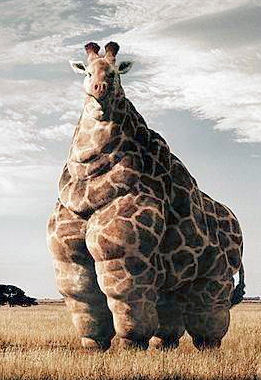

By most accounts, our economy is in the crapper, and yet the day after President Bush revealed his "bailout" plan, Google Search trends reported that "cupcakes" was a more popular search term than "financial crisis," "bailout," or even "economy in the crapper." In case you are curious, "puppies" topped the list.
The Boston Globe thinks they may have an answer to that odd trend (besides the obvious one that we are vapid, simple people more concerned with kittens and confections than 401Ks): less people are dieting. In fact, according to their source - a soon-to-be-released study on dieting patterns in the U.S. - a mere 26% of all women and 16% of all men were on a diet as of February 2008. This is the lowest number of dieters in recorded history. Somewhere Atkins' family is exhuming his body just so they can perform another autopsy to drum up interest in the Diet Revolution again.
Honestly, I don't know who the mysterious survey interviewed. In my circle of friends exactly 0% are dieting. That's because we're all "making lifestyle changes" per the advice of the ten different women's magazines we all subscribe too. "Dieting" is old skool and not in a retro-Nikes kind of way.
So what is the difference between a diet and a lifestyle? A lifestyle is exactly the same as a diet. Except where diets have a finite beginning and end, lifestyles are forever. Here, I'll break it down for you:
1. On a diet you count calories (or carbs or fat grams or trips to your therapist) but as part of your new Lifestyle instead you "food journal." It's not just food and numbers but a legacy for posterity! Your grandkids will thank you.
2. On a diet you restrict something like carbs or sweets or fat or anything white but as part of your new Lifestyle you aren't restricting anything - you just choose not to eat it. You can pick any number of reasons for your selectivity. Popular ones include "allergies" "bloating issues" and any medical condition you can make up ending with the word "syndrome." The options are limited only by your imagination!
3. On a diet you follow a strict program like Atkins or South Beach or Scarsdale but as part of your new Lifestyle you are expected to know the details of every program, be able to pick the ones that best suit you and then change on a moment's notice when the new diet research comes out each month packaged in between glossy advertisements for, ahem, "health" products.
4. On a diet you are expected to be hungry. As part of your new Lifestyle, however, you must find a way to reinterpret stomach growls. You are not deprived, you are "80% full." You are not hungry, you are simply no longer a slave to your cravings. You are not Starvin' Marvin, you are just plain old Marv from accounting.
5. But the most important difference to remember is that while on a diet you are allowed to be cranky, irritable and restless. As part of your new Lifestyle you are required to embrace all of these changes with equilibrium (PMS notwithstanding), understanding and even excitement.
The Boston Globe article sums it up nicely with this sentiment from Liliana Staiculescu, 48, an accountant from Plainville, "Dieting is not your normal way of living. You have to limit what you eat and pay attention to your health." Got that?